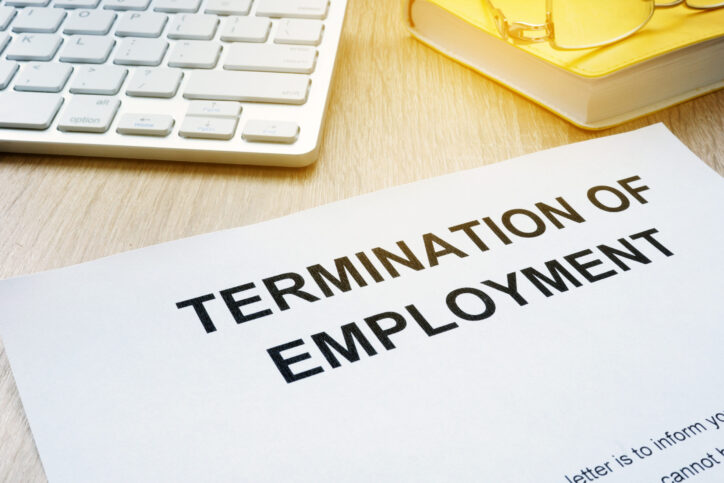When conducting performance management processes or undertaking an investigation into a workplace incident (such as an allegation of misconduct, bullying or harassment) it is important for employers to provide employees with procedural fairness.
In doing so, this may provide the employer with a defence in the event of an unfair dismissal, discrimination or general protections claim arising from subsequent termination of employment or other such action taken as an outcome of the performance management or investigative process.
As part of procedural fairness requirements, employers must not unreasonably refuse an employee the opportunity to have a support person present at any meeting or discussion that may result in disciplinary action or lead to termination.
If an employer unreasonably refuses to allow an employee to bring a support person to such meetings the Fair Work Commission (FWC) may consider the dismissal to be harsh, unjust or unreasonable and reinstatement or compensation may result.
Notifying employees of their right to bring a support person
Although notifying an employee that they may bring a support person is not strictly required under the Fair Work Act 2009 (FW Act), it is recommended that employers do so as a matter of good practice.
In notifying employees of their right to bring along a support person, the employer demonstrates they have not unreasonably refused a request to have a support person present, a factor taken into consideration by the FWC when deciding whether a dismissal was harsh, unjust or unreasonable.
Notifying the employee of their right to bring a support person should be done at the time the employee is notified of the meeting.
It is recommended at least 24 hours’ notice be provided for disciplinary meetings so as to provide sufficient time for employees to arrange a support person to attend.
Employers should record that the employee has been offered this right. This can be done by issuing the employee with a letter confirming the meeting time and date and stating that the employee can bring a support person if they wish. Alternatively, a file note can be recorded or email notification may also be appropriate.
What is a support person?
A support person is a person nominated by an employee to provide support to the employee in a meeting (generally of a disciplinary nature). A support person can be a friend, family member, colleague, lawyer, union representative, or other nominated person.
What is the role of a support person?
The primary role of a support person is to provide emotional support to the employee being interviewed or disciplined and to act as the employee’s witness. A support person may also take notes, explain or clarify questions being directed at the employee, act as a sounding board and/or request a short break.
A support person should not respond on the employee’s behalf or disrupt the proceedings. This interpretation has been supported by a recent Full Bench decision, which clarifies that a support person is not to act as an advocate for the employee [Victorian Association for the Teaching of English Inc v de Laps [2014] FWCFB 613 (19 February 2014)].
Notifying the support person of their role during the meeting
Before commencing the meeting, the employer should explain to the support person their role in the meeting (i.e. to provide emotional support). If during the meeting the support person begins to act as an advocate, the employer may stop the meeting, remind the support person of their role and give them another opportunity to act appropriately. If the support member continues acting as an advocate, the employer can adjourn and reschedule the meeting and ask the employee to bring another support person.
Frequently asked questions
Scenario 1: I have organised a disciplinary meeting with an employee. The employee wants to bring a union representative as their support person, can I decline this request?
Generally, no, an employer cannot deny the request simply because the support person is a union delegate.
Refusal must be reasonable. For example, where it would be a conflict of interest for the selected support person to attend the meeting.
An example of a conflict of interest would be where a bullying complaint has been lodged against a group of employees and one of the accused has been called in as a support person.
While the employee can nominate a union representative as their support person; the union representative must act in the role of a support person and not as an advocate.
Scenario 2: My employee’s support person is talking over me during the meeting – what can I do?
If the support person is talking over the employer during the meeting, the employer can stop the meeting and remind the support person of their role. The employer should recommence the meeting and give the support person the opportunity to act appropriately.
Scenario 3: How much notice do I need to provide to an employee to organise a support person?
Although there is no legislative requirement to provide employees with a particular amount of notice to organise a support person, the notice should be reasonable. What is reasonable, however, depends on the circumstances in each case. Generally, 24 to 48 hours’ notice would be considered reasonable.
Scenario 4: I have given my employee notice of a meeting and the opportunity to bring a support person, however, the employee doesn’t think they can organise one. Do I need to reschedule the meeting?
Under the FW Act employers cannot unreasonably refuse to allow an employee to have a support person present. In this situation, the employer has taken reasonable steps to allow the employee to have a support person present and has not unreasonably refused their bringing a support person along to the meeting.
As such, the employer’s statutory obligations have been met. The employer may wish to remind the employee, who they can nominate as a support person (i.e. friend, family member, colleague, lawyer, union representative etc.). If the employee fails to arrange a support person, this should not prevent the employer from proceeding with the meeting.
Scenario 5: What should I do if the employee has an appropriate support person they wish to bring along to a disciplinary meeting but they are not available for a week?
It may reasonable in this circumstance to advise the employee that the meeting must proceed prior to this time and that the employee may arrange an alternate support person to attend the meeting as scheduled.
These situations should be assessed on a case-by-case basis as to the reasonableness of the refusal. Generally, 24 to 48 hours’ notice is sufficient and the employer may then proceed, whether or not a support person has been arranged.
Scenario 6: The employee has asked to bring another staff member as their support person is this allowed?
Yes, a support person can be anyone nominated by the employee which includes another staff member. However, there are certain situations where refusing another staff member could be considered reasonable. For example, there might be a conflict of interest if the other employee was a witness in relation to an allegation being put to the employee, or the staff member has made the complaint about the employee that is being investigated.
Like to know more? CCIWA can provide more detailed information to assist you in managing a support person. For further assistance call CCIWA’s Employee Relations Advice Centre on (08) 9365 7660 or email [email protected].












